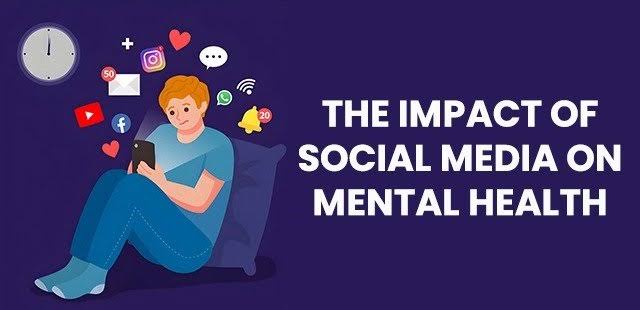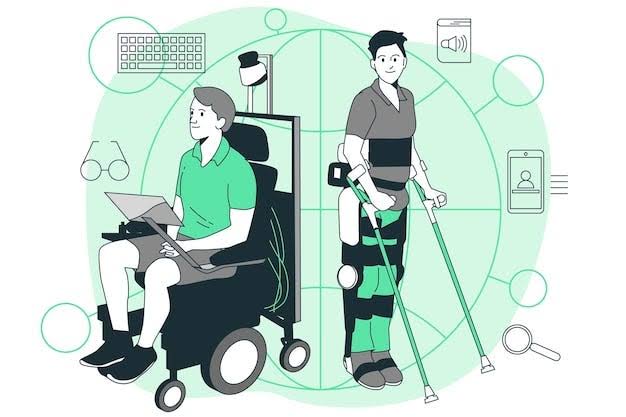Social media has become an inseparable part of modern life. Platforms such as Facebook, Instagram, TikTok, and X are now used daily by billions of people worldwide for communication, entertainment, and information sharing. While these platforms offer countless opportunities for connection and self-expression, they also raise important concerns about their effect on mental health. As usage continues to rise globally, researchers, health professionals, and society at large are paying close attention to the impact of social media on mental well-being.
The Connection Between Social Media and Mental Health
The influence of social media on mental health is complex. For some, it provides support, connection, and a sense of belonging. For others, it contributes to anxiety, stress, and feelings of inadequacy. This dual effect largely depends on how much time is spent online, the type of content consumed, and how individuals interact with these platforms. Social media can create environments of comparison, validation-seeking, and constant exposure to curated lifestyles that may not reflect reality.
Increased Feelings of Anxiety and Depression
One of the most widely discussed impacts of social media is its link to anxiety and depression. Constant exposure to idealized images and success stories often triggers unhealthy comparisons. Users may feel that their own lives are less exciting or less successful, leading to dissatisfaction and sadness. Excessive use of platforms, particularly among teenagers and young adults, has also been associated with disrupted sleep patterns, poor self-esteem, and loneliness—all of which can contribute to depression.
The Role of Cyberbullying and Harassment
Cyberbullying is another critical mental health issue tied to social media. Unlike traditional bullying, online harassment can occur around the clock and reach a much larger audience. Victims of cyberbullying often experience emotional distress, anxiety, and long-term trauma. The anonymity offered by social platforms sometimes emboldens bullies, making it easier for harmful behavior to spread quickly and cause lasting psychological effects.
Social Media Addiction and Dependency
Another growing concern is the addictive nature of social media. Many platforms are designed with algorithms that encourage endless scrolling, likes, and notifications, which can trigger dopamine responses in the brain. This creates a cycle where individuals feel compelled to check their accounts frequently. Over time, such dependency can interfere with daily activities, reduce productivity, and increase stress, further affecting mental health.
Positive Aspects of Social Media for Mental Health
Despite the challenges, it is important to recognize the positive role social media can play. For many, these platforms provide spaces for community, support, and awareness. Mental health campaigns often reach wide audiences through social media, helping to reduce stigma and provide access to valuable resources. Online support groups and communities can be lifelines for people who feel isolated in their offline environments, offering encouragement and understanding.
Impact on Sleep and Daily Routines
Excessive use of social media, especially late at night, has been shown to affect sleep quality. The blue light from screens disrupts natural sleep patterns, while the emotional stimulation of engaging with content can make it harder to relax. Poor sleep, in turn, contributes to irritability, anxiety, and difficulty concentrating, creating a cycle that negatively impacts mental well-being.
The Influence of Validation-Seeking Behavior
Social media often revolves around likes, comments, and shares, which can drive people to seek constant validation. When users do not receive the attention they expect, it can lead to feelings of rejection or low self-worth. This validation-seeking behavior is particularly concerning among teenagers, who may tie their self-esteem to online approval rather than real-life achievements and relationships.
Strategies for Healthier Social Media Use
To minimize the negative impact of social media on mental health, individuals can adopt healthier habits. Some effective strategies include:
- Limiting daily screen time and setting boundaries for social media use
- Curating feeds by unfollowing accounts that trigger negative emotions
- Using apps that monitor and control social media usage
- Prioritizing offline activities, such as exercise, reading, or spending time with loved ones
- Practicing digital detoxes by taking regular breaks from online platforms
These approaches can help create a healthier balance between online and offline life, reducing the risks associated with overuse.
The Role of Education and Awareness
Raising awareness about the psychological effects of social media is essential. Schools, parents, and communities need to educate young people about the potential risks and teach them how to use these platforms responsibly. Mental health organizations and policymakers also play a key role in advocating for safer online environments, stricter regulations against cyberbullying, and better support systems for vulnerable users.
Conclusion
The impact of social media on mental health issues is undeniable and multifaceted. While it offers opportunities for connection, awareness, and support, it also poses serious risks such as anxiety, depression, addiction, and cyberbullying. Striking a balance between the benefits and drawbacks is crucial for maintaining mental well-being in an increasingly digital world. By adopting mindful practices, fostering awareness, and promoting healthier usage, individuals and communities can reduce the negative effects while maximizing the positive potential of social media.




Nice article
Nice read
Social media not a better antidote for mental health
Depends on how you view it